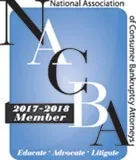If you’ve defaulted on your car loan, you could be facing serious consequences. In addition to damaged credit, the lender could legally repossess the vehicle at any time without notice. To prevent this unwanted consequence, it’s important to act quickly. Whether you’re trying to stop a repossession or recover a vehicle after repossession, an experienced repossession lawyer can help.
Information on this page:
What Is the Car Repossession Process?
When you purchase a vehicle, you sign a contract that legally binds you to make payments based on the terms laid out in the contract. Depending on those terms, falling behind on even a few payments could cause your loan to default.
Once your loan is in default, the lender has the right to take the car back, sell it at an auction, and then sue you for the balance between what you agreed to pay and what they were able to recover in the auction.
But if you’re behind on their car payments, you have legal options. In addition to debt collection laws and credit counseling options, bankruptcy can help you keep your vehicle.
Bankruptcy’s Automatic Stay Pauses Repossession Efforts
Once you file for any kind of bankruptcy, the court will issue an automatic stay and notify your creditors, including your car lender. The automatic stay stops all creditor actions, such as collections calls, harassing letters, and lawsuits. This also prohibits lenders from repossessing your car. Many people discover that without constant pressure from their creditors, they can think clearly and create a meaningful debt relief plan.
However, your car lender may fight back, and ask the bankruptcy court to lift the automatic stay. If the lender files a motion to lift the stay and moves forward with taking your car and auctioning it, you still have options.
Filing Chapter 7 to Stop Repossession
While Chapter 7 typically liquidates all of your non-exempt assets, you may have options regarding your vehicle. Chapter 7 allows you to buy back the car in one lump sum. Sometimes called a redemption, you will have the option of paying the lender your vehicle’s replacement value in exchange for the car. Many times, this value is much less than your loan amount, since most cars quickly depreciate in value.
You can also choose to reaffirm the debt with the lender and agree on new terms. This may include negotiating a new loan amount or payment schedule. However, when you reaffirm a loan, the bankruptcy court will not discharge it as part of your Chapter 7 bankruptcy. If you default on your car loan again, you run the risk of repossession.
Finally, you can sell your vehicle as part of a Chapter 7 proceeding and use the proceeds to pay off your creditors. When you do this, any remaining car loan debt is discharged as part of the bankruptcy.
If the lender has already repossessed your car, sold it, and is now suing you for the difference, a Chapter 7 bankruptcy can discharge the entire debt you owe the lender. However, once the car is auctioned off, you will not be able to get your car back. If you have non-exempt equity in your vehicle (which is rare), you may be able to get your car back as part of your bankruptcy estate.
Filing Chapter 13 to Stop Repossession
Filing Chapter 13 is your best option to save your vehicle. That’s because this chapter of bankruptcy allows you to pay off your loans through a payment plan. So even if your car has been repossessed, the lender will typically return the car to you, so long as you can show that you will be able to make payments and clear up any arrearages. You will be required to pay for the repossession costs, however, which is usually only a few hundred dollars.
If your car has yet to be repossessed, you won’t have to worry about the lender coming in the night and taking it away. Your Chapter 13 bankruptcy filing will keep the ball in play and as long as you continue to make payments, you will get to keep your car. However, if you stop making your Chapter 13 payments, you face the risk of losing your car and the protections of the automatic stay.
Do I Have Other Debt Relief Options?
In addition to bankruptcy, you may also have other debt relief options. For example, your lender may agree to new loan terms outside of a bankruptcy. If your credit is still good, you may also have the option of refinancing with more advantageous terms. Additionally, some lenders will agree to defer your payments for a short period while you get back on your feet.
Talk to a Repossession Lawyer Today About Your Options
Facing car repossession can be both embarrassing and costly. If you’ve defaulted on your auto loan, don’t wait until the situation gets worse. An experienced repossession lawyer can help you assess your options, understand your rights, and ensure that you protect the assets most important to you. Contact Carmichael Law Group today to learn more.




